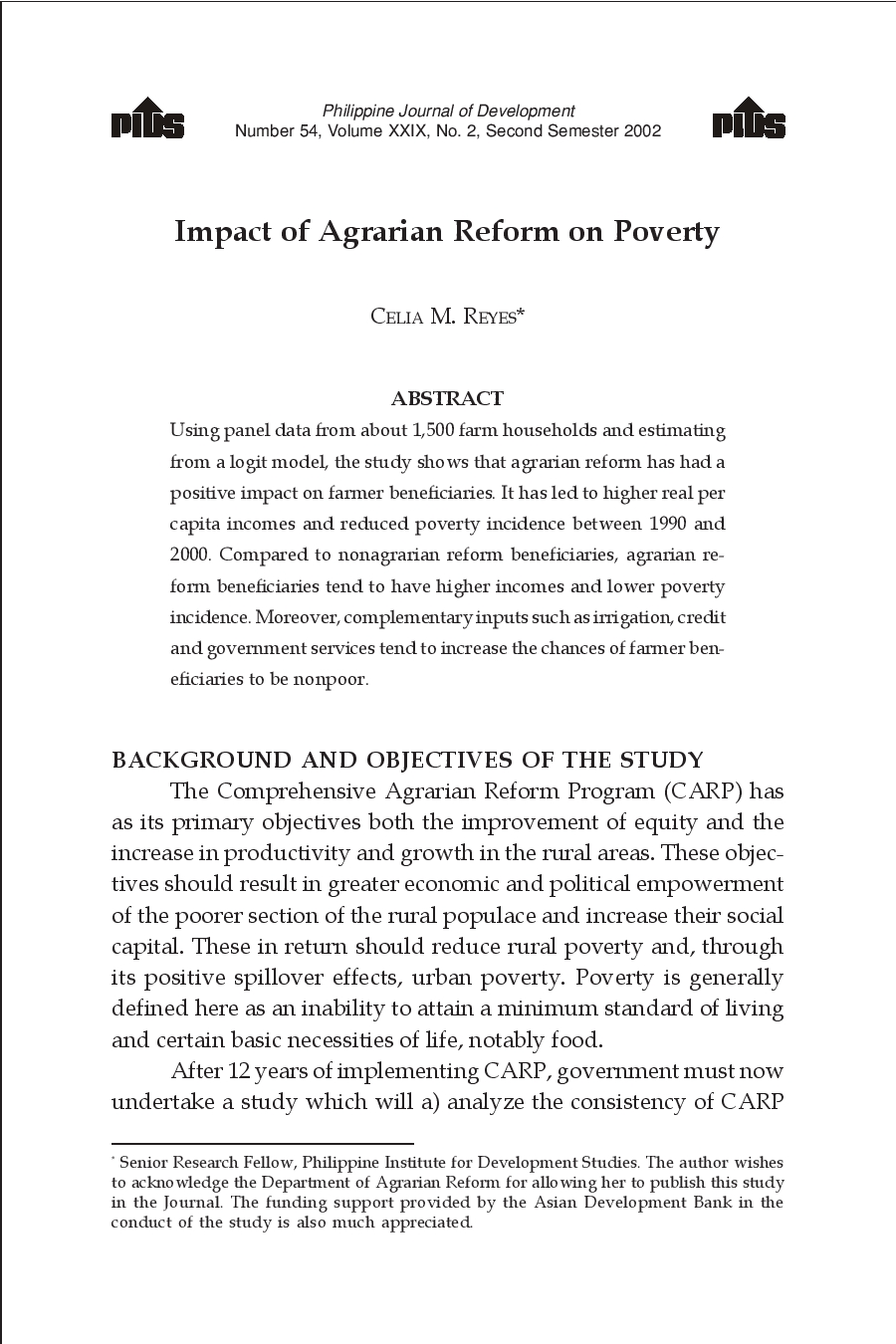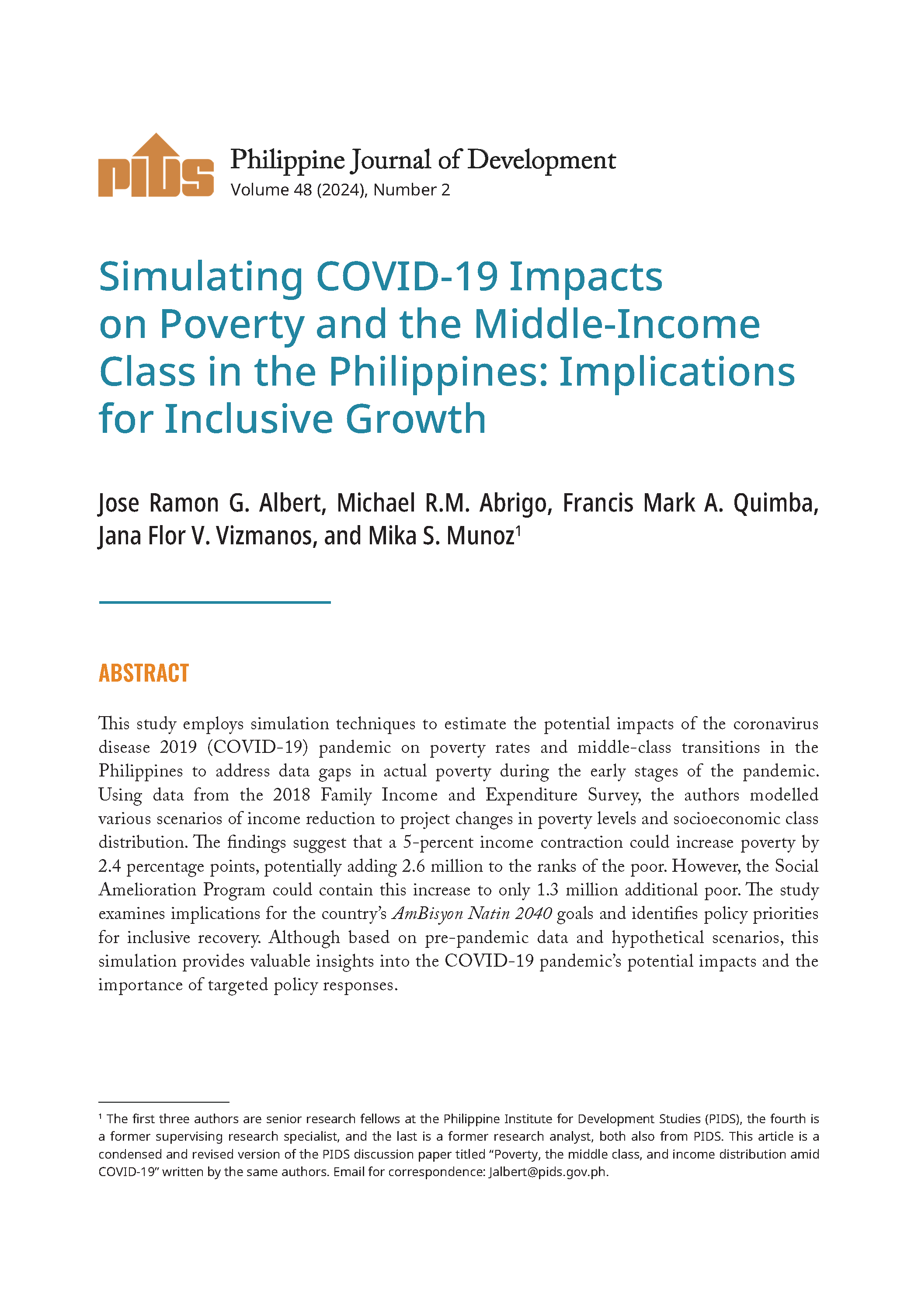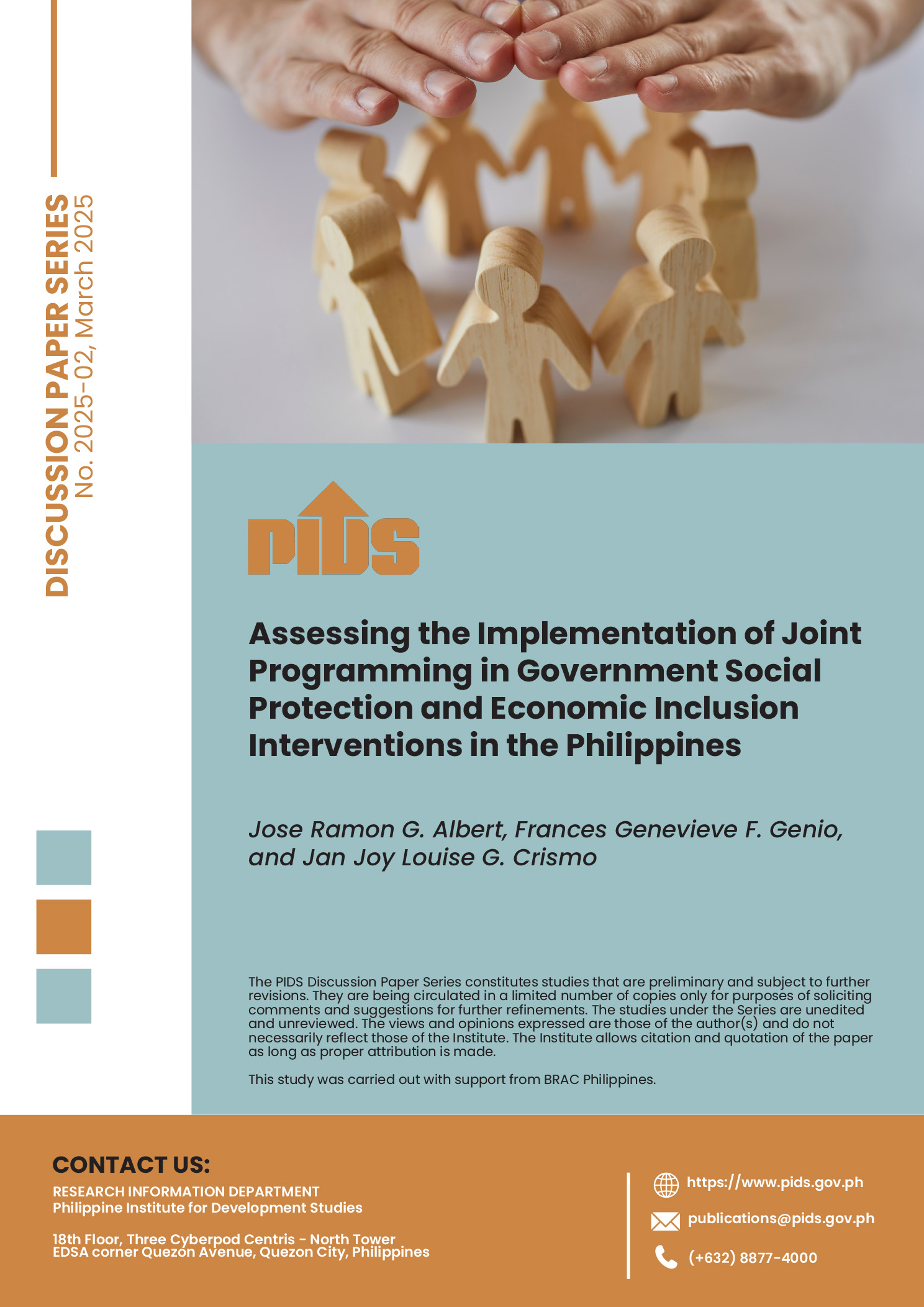Using panel data from about 1,500 farm households and estimating from a logit model, the study shows that agrarian reform has had a positive impact on farmer beneficiaries. It has led to higher real per capita incomes and reduced poverty incidence between 1990 and 2000. Compared to nonagrarian reform beneficiaries, agrarian reform beneficiaries tend to have higher incomes and lower poverty incidence. Moreover, complementary inputs such as irrigation, credit and government services tend to increase the chances of farmer beneficiaries to be nonpoor.
Citations
This publication has been cited 8 times
In other Publications
- Bequet, Ludovic. 2021. . MPRA Paper 108131. University Library of Munich, Germany.
- Bequet, Ludovic. 2022. . DeFiPP Working Papers 2203. University of Namur, Development Finance and Public Policies.
- Drbohlav, P., J. Svit谩lek, and J. Hejkrl铆k. 2017. . AGRIS on-line Papers in Economics and Informatics, 9, no. 2. Czech University of Life Sciences Prague, Faculty of Economics and Management.
- Fabella, Raul V.. 2014. . Philippine Review of Economics, 51, no. 1, 1-18. (via RePEc)University of the Philippines School of Economics and Philippine Economic Society.
- Lanzona, Leonardo. 2019. . MPRA Paper 99166. University Library of Munich, Germany.
- Lanzona, Leonardo A. Jr.. 2019. . Millennial Asia,10, no. 3, 272-298. Association of Asia Scholars.
- Llanto, Gilberto M. and Marife M. Ballesteros. 2003. . Discussion Papers DP 2003-03. Philippine Institute for Development Studies.
- Nomfundo Mabuza, Nosipho. 2016. . Research Theses 243471. Collaborative Masters Program in Agricultural and Applied Economics.













